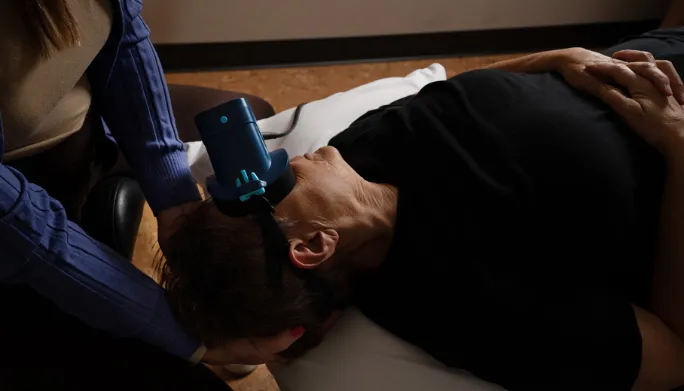Benign Paroxysmal Positional Vertigo (BPPV)
How will vestibular therapy help with my Benign Paroxysmal Positional Vertigo (BPPV)?
Vestibular therapy, often administered by a trained physical therapist, is a specialized form of treatment designed to address balance problems and dizziness associated with issues in the inner ear. BPPV occurs when tiny calcium particles, known as otoconia, become lodged in the inner ear, causing short, intense episodes of dizziness that may be associated with changes in head position.
In vestibular therapy, there are multiple techniques used to treat BPPV referred to as canalith repositioning maneuvers. These non-invasive procedure involves specific head movements to shift the otoconia from the sensitive part of the ear to an area where it won’t cause symptoms. There are many different kinds of maneuver and there is not one specific treatment that is right for everyone. Oftentimes people find relief in just one or two sessions after appropriate maneuvers have been performed.
Additionally, vestibular therapy may involve habituation exercises, which can help reduce the intensity and frequency of dizziness, as well as gait and balance training to improve overall stability.
How can I tell if it’s Benign Paroxysmal Positional Vertigo (BPPV)?
BPPV, or Benign Paroxysmal Positional Vertigo, presents with several distinct symptoms:
Short, Intense Episodes of Dizziness: These sudden spells can range from a few seconds to about a minute. They commonly occur due to changes in head position, such as when turning over in bed or tilting the head upwards.
Nausea: The intense dizziness can occasionally be paired with nausea, and in some instances, may lead to vomiting.
Nystagmus: This refers to involuntary eye movements, typically moving side to side. It’s frequently observed during bouts of dizziness.
Loss of Balance: Not everyone with BPPV experiences this, but some might feel unsteady or lose their balance, particularly when making abrupt head motions.
For an accurate diagnosis of BPPV, a healthcare professional often performs the Dix-Hallpike test. In this assessment, the patient’s head is turned to a specific angle, followed by a swift transition to laying them flat on their back. If BPPV is the underlying cause, this maneuver typically triggers an episode of vertigo, along with the observable nystagmus.
At our clinic, during the Dix-Hallpike test and other evaluations, we utilize state-of-the-art infrared goggles. These goggles allow us to clearly visualize and monitor eye movements, even with the patient’s eyes closed. By doing so, we can gain a more precise understanding of the nystagmus patterns, aiding in the correct diagnosis and tailored treatment of BPPV and other vestibular disorders.

What caused my Benign Paroxysmal Positional Vertigo (BPPV) in West Des Moines?
BPPV can be caused by a variety of factors:
Age: BPPV is more common in older adults. As we age, there is a greater risk of otoconia becoming dislodged from their normal location.
Head Injury: A blow to the head, even if minor, can dislodge the otoconia and lead to BPPV.
Other Causes: There are times when the exact cause remains unknown. Some people may have a predisposition due to underlying factors, while others might experience BPPV after an episode of another type of inner ear problem or viral infection.
It’s worth noting that in many cases, BPPV can resolve on its own after several weeks or months. However, for those who continue to experience symptoms, seeking treatment can greatly improve their quality of life.
Benign Paroxysmal Positional Vertigo Relief in West Des Moines
Living with the unpredictable bouts of dizziness that BPPV brings can be distressing, but you don’t have to navigate this journey alone. Our specialized team at Mountain Laurel Physical Therapy is dedicated to providing comprehensive care for those suffering from vestibular disorders. Our expert physical therapists are trained in the latest techniques to help alleviate the symptoms of BPPV and restore balance to your life.
If you or a loved one are experiencing symptoms consistent with BPPV, don’t hesitate to reach out. Contact us today to schedule an evaluation and take the first step toward finding relief. Your journey to a steadier, dizziness-free life is just a phone call away.


